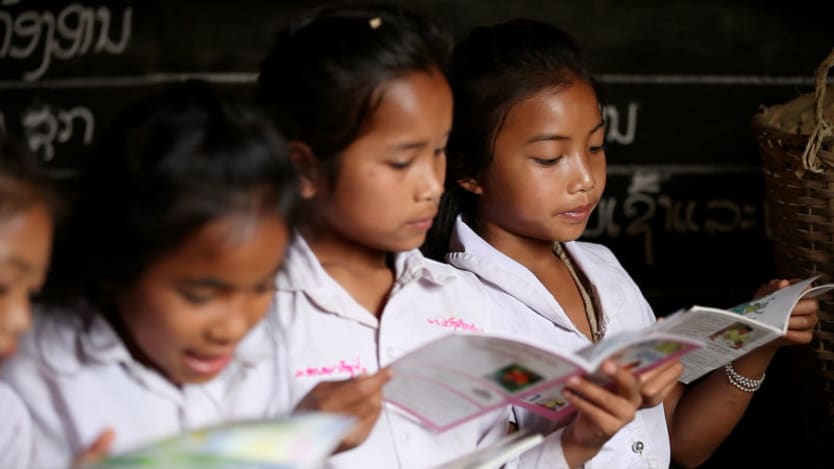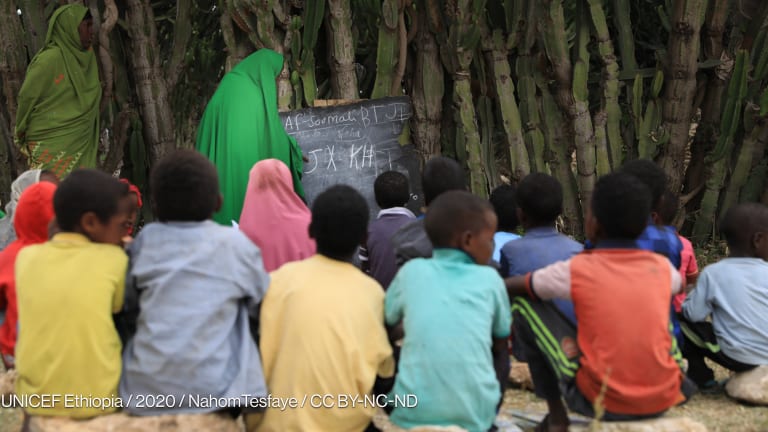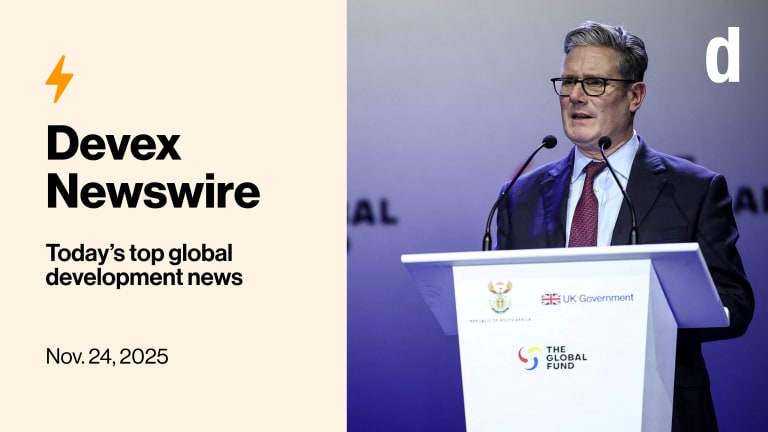
LONDON — Civil society groups have reacted with dismay after the United Kingdom made an early but lower-than-expected pledge to replenish the Global Partnership for Education, sparking some fears the multilateral fund may not hit a hoped for $3.1 billion target.
The Department for International Development is to pledge £225 million ($320m) in funding to the GPE over three years, Penny Mordaunt, DFID’s head of three months, will officially announce later on Friday at the GPE replenishment conference in Dakar, Senegal.
The new £225 million is lower than the country’s previous pledge in 2014 which was £300 million ($427.7m), and is significantly lower than the £350 million ($499m) that civil society groups had been arguing for. The money is also subject to strict caveats.
DFID, which has historically been the GPE’s largest single donor, outlined details of its pledge this morning in a press release, but Mordaunt will not make the official announcement until this afternoon alongside other world leaders.
Civil society groups reacted with dismay and surprise, and said they had expected a higher figure. But Mordaunt hinted the figure might be lower when she gave evidence before the International Development Committee in the House of Commons earlier this week.
Some education advocates also questioned the wisdom behind making an early pledge when other major donors — including France, Germany, and the Nordic countries — have yet to finalize their figures, warning the British move could pave the way for them to also reduce their commitments.
Canada has already announced a doubling of its annual commitment to GPE, while the European Union made a welcome additional pledge in December.
"We're surprised and disappointed by the U.K.'s contribution,” said Philippa Lei, advocacy director at the Malala Fund, especially considering there is “much better data on the scale of the problem and resources needed to get all girls in school,” than when the U.K. made its 2014 pledge.
“Ultimately this doesn't just affect the girls who won't go to school because the U.K. came in much lower than expected; it impacts all of us. Girls' education is the single best investment in a safer, healthier, wealthier world,” she added.
However, DFID officials have defended the sum which they say represents a nearly 50 percent increase in annual contributions to GPE compared to previous years. This is because, while the 2014 and 2018 pledges both amount to an annual contribution of £75 million ($107m), in practice only two-thirds of the money has been disbursed in the past — working out to £53 million ($75.6m) per year. The limit on disbursements was the result of a cap put in place by DFID, meaning it will not fund more than 15 percent of the total GPE pot — a move intended to incentivize other donors to pledge more.
The cap remains in place for this replenishment round, but if enough is raised then DFID could end up giving the full £75m per year.
The U.K. has also said that 30 percent of its pledge will be contingent on GPE carrying out a number of reforms.
The GPE’s chair Julia Gillard, also a former prime minister of Australia, thanked the U.K. for “increasing by 50 percent its commitment to the Global Partnership for Education for the next three years,” she wrote in a statement sent to Devex, adding that “GPE will keep working with the U.K. to achieve even greater financing commitments in the future.”
Alongside financing, DFID has also said it will offer support to GPE’s priorities — such as reaching hard-to-reach girls and children with disabilities — and is exploring becoming a GPE implementing agency in additional GPE partner countries, a DFID official told Devex.
David Archer, head of education at ActionAid, described the pledge as “significant” and also praised DFID’s focus on teachers and the most marginalized girls and children with disabilities.
However, he warned that the “burden share cap” imposed by DFID would have negative effects unless GPE was unable to meet its fundraising targets.
“We hope that DFID will now be truly proactive in encouraging other donors to pledge more to GPE so that the burden share cap does not constrain DFID’s funding to GPE again,” he said.
Kate Osamor MP, Labour's shadow minister for international development, called it a ”deeply dispiriting announcement” and said it will leave a “£125 million hole” ($178.2) in the GPE’s finances.
She also criticized DFID for going against the advice of the UK Parliament’s International Development Select Committee which had recommended an early but high pledge.
Romilly Greenhill, UK director of the ONE Campaign, said the lower-than-expected pledge represents a loss of U.K. leadership in the sector.
“A higher pledge would have given the U.K. a golden opportunity to demonstrate global leadership on education and use our expertise to promote quality education for all — an opportunity that now risks being lost,” she said.
The replenishment comes as the World Bank describes a “learning crisis” around the world, with an estimated 260 million children and young people currently out of school, and a further 330 million in school but learning little. The U.N. has identified a $39 billion spending gap in what is needed to reach the Sustainable Development Goals’ education targets.
The lower funding pledge appears in line with Mordaunt’s position urging developing country governments to take greater “responsibility” for funding public services.
“We need an education revolution, but to succeed in tackling this global learning crisis, we will not just need to be open-hearted — we need to be hard-headed too,” Mordaunt said in the press release. “The U.K. will lead the way by supporting countries’ governments to fundamentally overhaul their education systems to make sure they can ultimately step up and provide a good education for their own people,” she added.
However, education experts point out that the GPE now requires developing country partners to increase their national spending on education towards a target of 20 percent.
Update, Feb. 8: This story was amended to provide further detail on DFID’s annual contribution to GPE
Read more Devex coverage on education.








